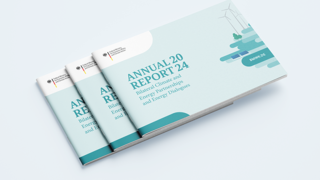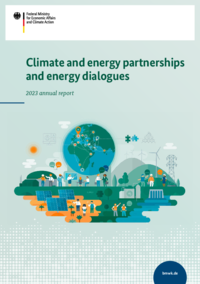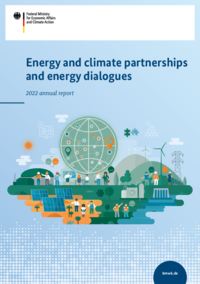Annual Report: Progress and Potential of the Climate and Energy Partnerships
The Annual Report on Climate and Energy Partnerships, Dialogues and Hydrogen Partnerships introduces the progress towards global climate goals and the potential for further cooperation in the energy sector. Compiled by the German Federal Ministry for Economic Affairs and Energy (BMWE), the report provides a comprehensive overview of the activities and impacts of Germany's bilateral energy cooperation, as well as the opportunities and challenges that remain in the energy transition.
2024 at a glance
Find the most important activities from the partner countries in the annual report and explore the challenges and successes of the past year.

The 2024 Annual Report highlights the key role that bilateral Climate and Energy Partnerships (CEPs) play not only in meeting the world's energy needs while advancing global climate goals, but also in promoting sustainable foreign trade. It showcases a wide range of initiatives, from renewable energy projects to infrastructure development and technology transfer. In particular, the report highlights the tangible benefits of these partnerships, including enhanced energy security, economic growth and environmental sustainability.
The report highlights how significant impact and these benefits can still be achieved despite persistent challenges such as policy and regulatory barriers, financing constraints and geopolitical complexities that often impede the seamless flow of energy investment and cooperation.
The report shows significant progress in renewable energy deployment, with solar and wind emerging as key drivers of the clean energy transition in many partner countries. The report not only testifies to the expansion of solar and wind as renewable energies, but also to the promotion of green hydrogen, its production and use in partner countries.
Discover what has happened in recent years here:
-

Annual Report Climate and Energy Partnerships 2023
PDF, 10,1 MB
-

Annual Report Climate and Energy Partnerships 2022
PDF, 8,9 MB